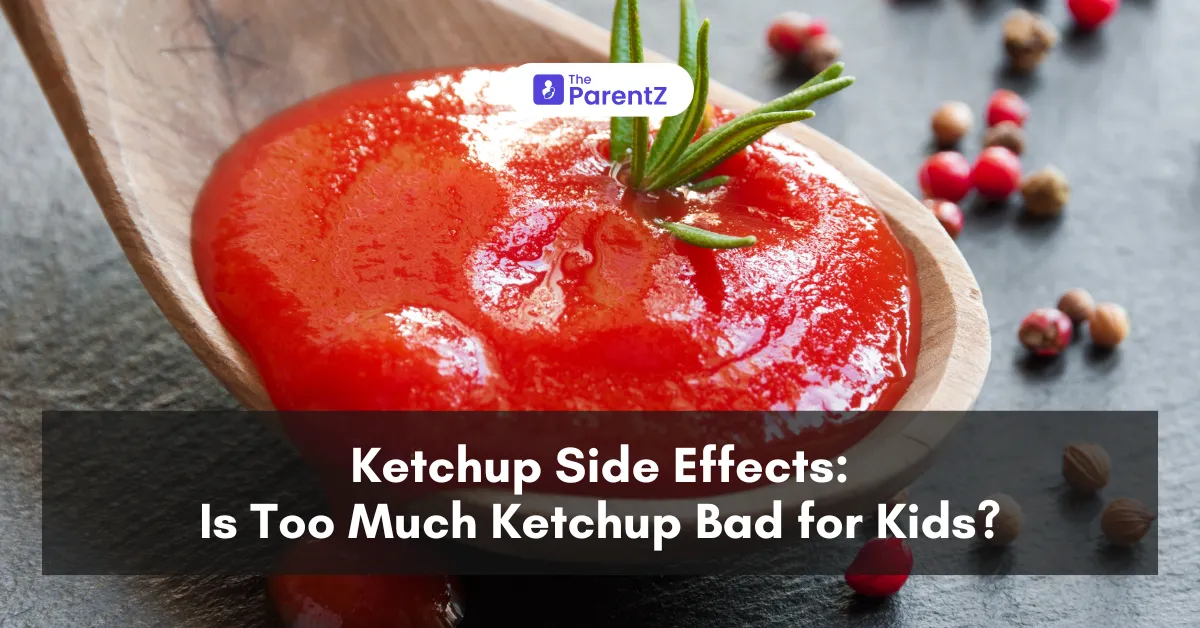Let's talk about ketchup. It's a staple in many households, a go-to condiment that seems to make everything from fries to veggies more appealing to kids. But have you ever stopped to consider the potential health risks of excessive ketchup consumption, especially for your kids? Let's explore the "ketchup side effects" you should be aware of.
Understanding the Health Risks for Kids
The Sweet Truth: High Sugar Content
One of the biggest concerns about ketchup is its high sugar content. While it tastes great, that sweetness comes at a cost. Excessive "added sugar" consumption has often been linked to a range of health issues, including:
- Weight Gain: Ketchup contributes unnecessary calories to meals without providing essential nutrients.
- Type 2 Diabetes: High sugar intake in kids increases the risk of type 2 diabetes.
- Dental Problems: The sugar in ketchup feeds harmful bacteria in the mouth, resulting in tooth decay and cavities.
- Hyperactivity and Sleep Issues: Regular intake of high amounts of sugar can cause sleep issues and hyperactivity in children.
It's important to remember that a single tablespoon of ketchup can contain a significant portion of your child's daily recommended sugar intake. If they're having multiple servings with each meal, the sugar adds up quickly.
Sodium Overload: A Salty Situation
Ketchup is also surprisingly high in sodium. While some sodium is necessary for bodily functions, excessive salt intake can lead to:
- High Blood Pressure: High sodium levels increase blood pressure, which is a risk factor for heart-related diseases and stroke.
- Calcium Losses: Too much sodium can cause the body to lose calcium, which can affect bone health.
Empty Calories: Missing Nutrients
Beyond sugar and sodium, ketchup doesn't offer much in the way of essential nutrients. It's primarily a source of empty calories, meaning it adds calories to your child's diet without providing the vitamins and minerals they need to grow and thrive.
The Acidity Factor: Digestive Discomfort
Tomatoes are naturally acidic, and that acidity is concentrated in ketchup. For some children, this can lead to digestive discomfort, such as heartburn or reflux, especially if they're already prone to these issues. Food additives in ketchup also disrupt the balance of bacteria in the gut, potentially causing inflammation.
High Fructose Corn Syrup and MSG: Added Concerns
Many commercial ketchups contain high-fructose corn syrup (HFCS), a sweetening agent linked to health problems like obesity and insulin resistance. Some kinds of ketchup also contain Monosodium glutamate (MSG). Extreme consumption of high fructose corn syrup is linked to obesity and an increased risk of colon cancer. Although there are no direct ties between cancer risk and MSG, there are other dangerous health effects that need to be considered when eating ketchup.
Making Better Choices for Your Kids
So, what can you do to mitigate the health risks of excessive ketchup consumption? Here are a few tips for parents:
1. Read Labels Carefully: Look for brands of ketchup with lower sugar and sodium content. Opt for brands that utilize natural sweeteners or no added sugar.
2. Moderate Consumption: Encourage your children to use ketchup sparingly. A small dollop is often enough to add flavor without overloading sugar and sodium.
3. Offer Alternatives: Introduce your kids to other healthy condiments, such as:
- Homemade Tomato Sauce: Make homemade tomato sauce with fresh tomatoes, herbs, and spices. This allows you to control the ingredients and reduce the sugar and sodium content.
- Hummus: This chickpea-based spread is a great source of protein and fiber.
- Guacamole: Made from avocados, guacamole is packed with healthy fats and nutrients.
- Yogurt-Based Dips: Mix plain yogurt with herbs, spices, or a touch of honey for a healthy and flavorful dip.
5. Make it a Treat, not a Staple: Ketchup should be used as an occasional treat, not an everyday staple.
6. Educate Your Children: Talk to your kids about the need for healthy eating and the potential risks of excessive sugar and sodium intake.
Conclusion
While ketchup isn't inherently harmful, excessive consumption can contribute to various health concerns in children. By understanding these risks and implementing thoughtful strategies, you can help your child adopt healthier eating habits while still enjoying their favorite foods in moderation.
Remember, the goal isn't to eliminate ketchup but to find a healthy balance. Small changes in daily habits often lead to significant improvements in your child's long-term health and relationship with food.





Be the first one to comment on this story.